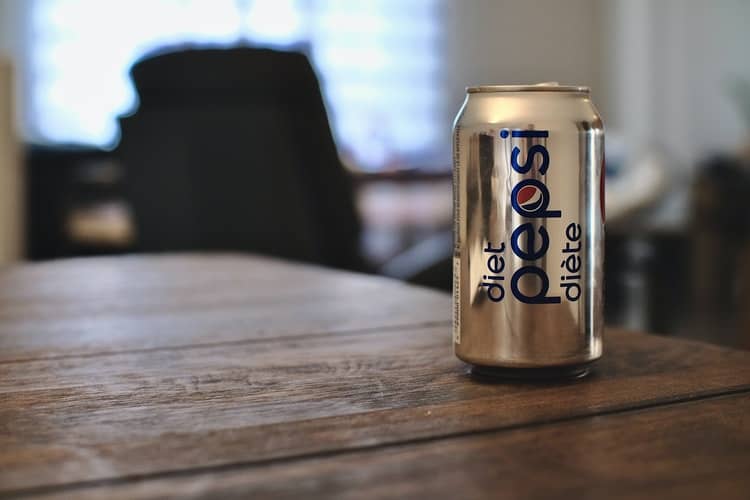
Fasting can be a contentious topic, from the benefits of fasting to what constitutes a fast itself. It’s grown in popularity as more information has emerged about nutrition as a whole.
No longer is breakfast considered the most important meal of the day. And no longer is it critical to eat 6 small meals per day to boost metabolism. These ideologies have been debunked. It’s not that it’s wrong to do them; it’s just no longer necessary.
The rules of fasting are often debated. Sometimes arbitrary numbers are thrown out such as “anything under 25 calories is considered fasting.” But these numbers are just that, arbitrary. Everyone’s body is different so it’s a bit silly to just come up with a random number that applies across the board.
Some people pound a 16 oz. bulletproof coffee that tops out at 400 calories and consider themselves to be fasting. For the purpose of this article, the definition of fasting will be strict. All foods, drinks, or supplements that have any caloric value will be considered to break a fast.
It is up to individual to determine how stringent they want the fasting protocol to be, but the information provided here will be under the assumption that they are aiming to consume zero calories.
One common question is whether diet soda is allowed while fasting.
Most diet sodas are fine to consume while intermittent fasting since they contain zero calories. A select few diet drinks however, like diet Snapple, contain 5-20 calories and will break a fast.
The same rule applies to supplements and sugar free energy drinks. Check the label to see if it’s truly calorie free before drinking. You could also check this article for a breakdown of what supplements break a fast.
The artificial sweeteners used to flavor diet soda do not contain any calories. From a taste perspective, artificial sweeteners are much sweeter than regular sugar. The amount of artificial sweeteners like sucralose or aspartame needed to flavor something is quite low due to its flavor potency.
The reason some diet drink brands contain calories is because they may combine artificial sweeteners with other natural flavoring agents which add calories.
Sugar alcohols are a different story. Sugar alcohols contain, on average, 2.6 calories per gram. The one exception is erythritol, which is only 0.25 calories per gram. Once in awhile you will find a diet soda that contains sugar alcohols, so it’s something to monitor while shopping. It’s rare, but still something to look out for.
It’s important to check the nutrition facts panel on each product to see if it contains any calories. Just because a soda is diet does not guarantee it is calorie free.
Does Diet Soda Spike Insulin?
One reason people implement fasting into their lifestyle is to keep insulin levels low throughout the day. Insulin is released when calories are consumed, and the rate of insulin secretion is based on the makeup of the meal itself. Insulin helps to transport nutrients like sugar and amino acids from the bloodstream into cells.
However, there is a misconception that diet soda spikes insulin due to the artificial sweeteners. This is not true, as diet soda contains zero calories. If insulin was elevated from a zero calorie drink, it would respond by taking glucose from fasting blood sugar levels, causing hypoglycemia.

Obviously this does not happen, as drinking a diet soda on an empty stomach does not cause dizziness or fainting. Therefore, artificial sweeteners do not have a profound impact on insulin levels. Just because something tastes sweet doesn’t mean it causes an insulin response. The human body is astute enough to recognize the difference between aspartame and real table sugar.
It’s also important to consider that the pancreas is always secreting some insulin, even during periods of fasting. So it is not as if you could reach a point where it is zero.
The goal with fasting is to keep insulin levels low and improve insulin sensitivity. Diet soda will not hamper either one.
Does Diet Soda Affect Autophagy?
Another benefit of fasting is autophagy, which is a cellular recycling process in the body. Basically, old cells are remodeled or used by stronger cells. The science is far more comprehensive, but the process of autophagy is associated with potentially positive health outcomes.
The process of autophagy is misunderstood by some, as it is not an on or off switch. It is occurring at some level in many situations. In fact, you do not have to fast to increase autophagy. Autophagy is increased during phases of dieting, where an individual is consuming fewer calories than required for body weight maintenance.
Since diet soda has zero (or very few) calories, it will not have any detrimental effect on autophagy.
For more about diet soda and its relationship to overall health and wellness, check out this article. It goes into details about some of the studies done on artificial sweeteners and their limitations.
Summary
Diet drinks are a great tool to curb appetite while dieting or fasting. The concern over diet soda taking someone out of a fast or inhibiting the positive effects of fasting is unwarranted. As long as the diet drink has zero calories, there is no need for concern.
Physiologically, it does not have any tangible impact on insulin levels so there is little to no potential for weight gain either. Many of the studies that show detrimental effects from artificial sweeteners and diet soda are performed in rats and poorly constructed. The rats were given amounts of artificial sweeteners so high that it would be impossible to replicate in humans.
For the purpose of this article, any food or drink that had caloric value was considered to break a fast. But this rule doesn’t have to apply to you. You can use intermittent fasting in any way you please. The point is to use the eating strategy in a way that helps you achieve your goal, whether it’s weight loss or improvement in health markers.
Recent Posts
Stretching Before Workouts: Essential Warmup or Performance Killer
“Don’t stretch before workouts, your muscles become too supple” “Stretch before your workouts, warming up is important” It's conflicting advice like this that drives people crazy,...
Best Protein Bar For the Money | Cost Effective, High Quality
Protein bars are no longer a supplement dedicated to diehard gym rats, with awful taste and the consistency of a brick. Men, women, and even teenagers can commonly be seen eating protein bars. The...
